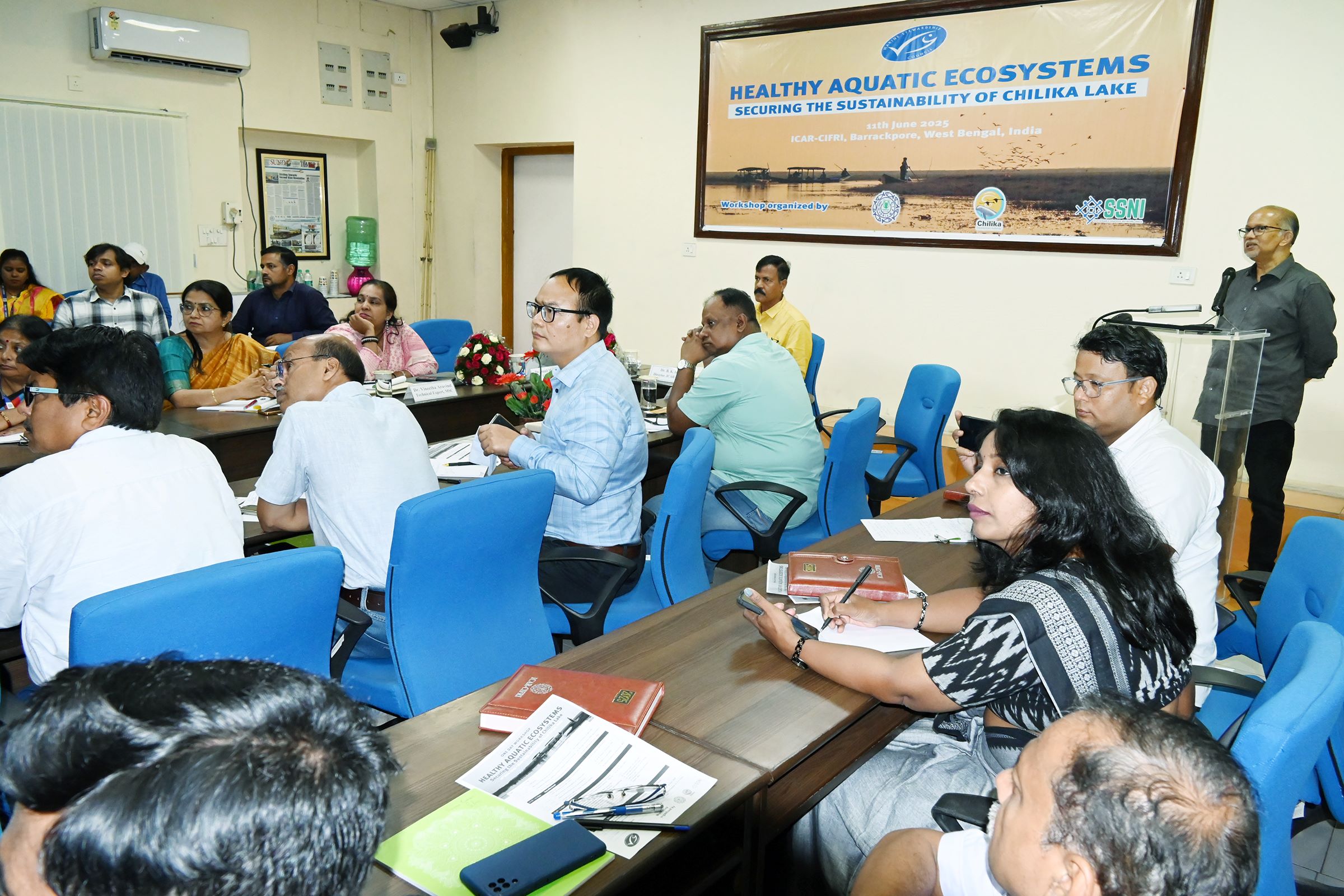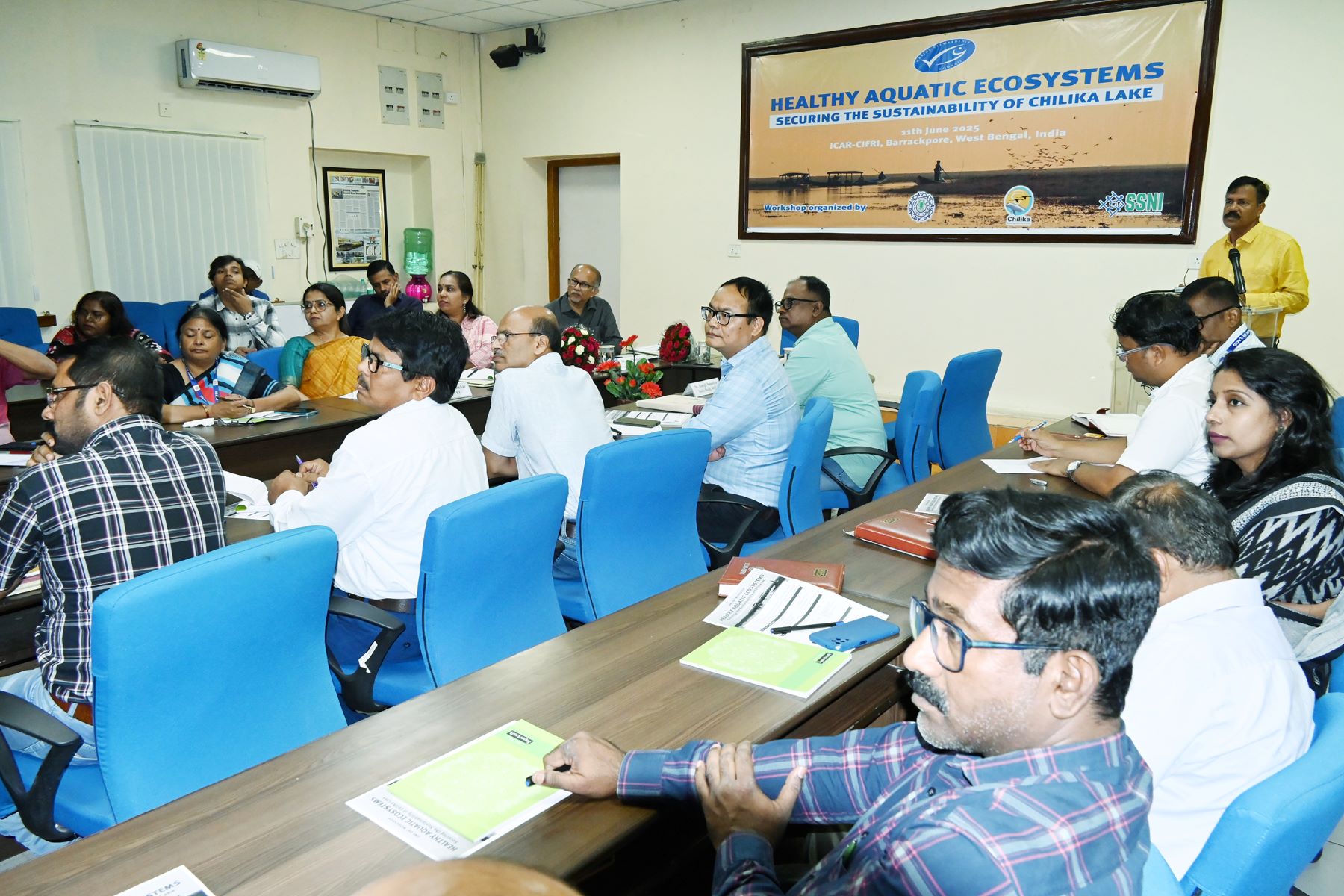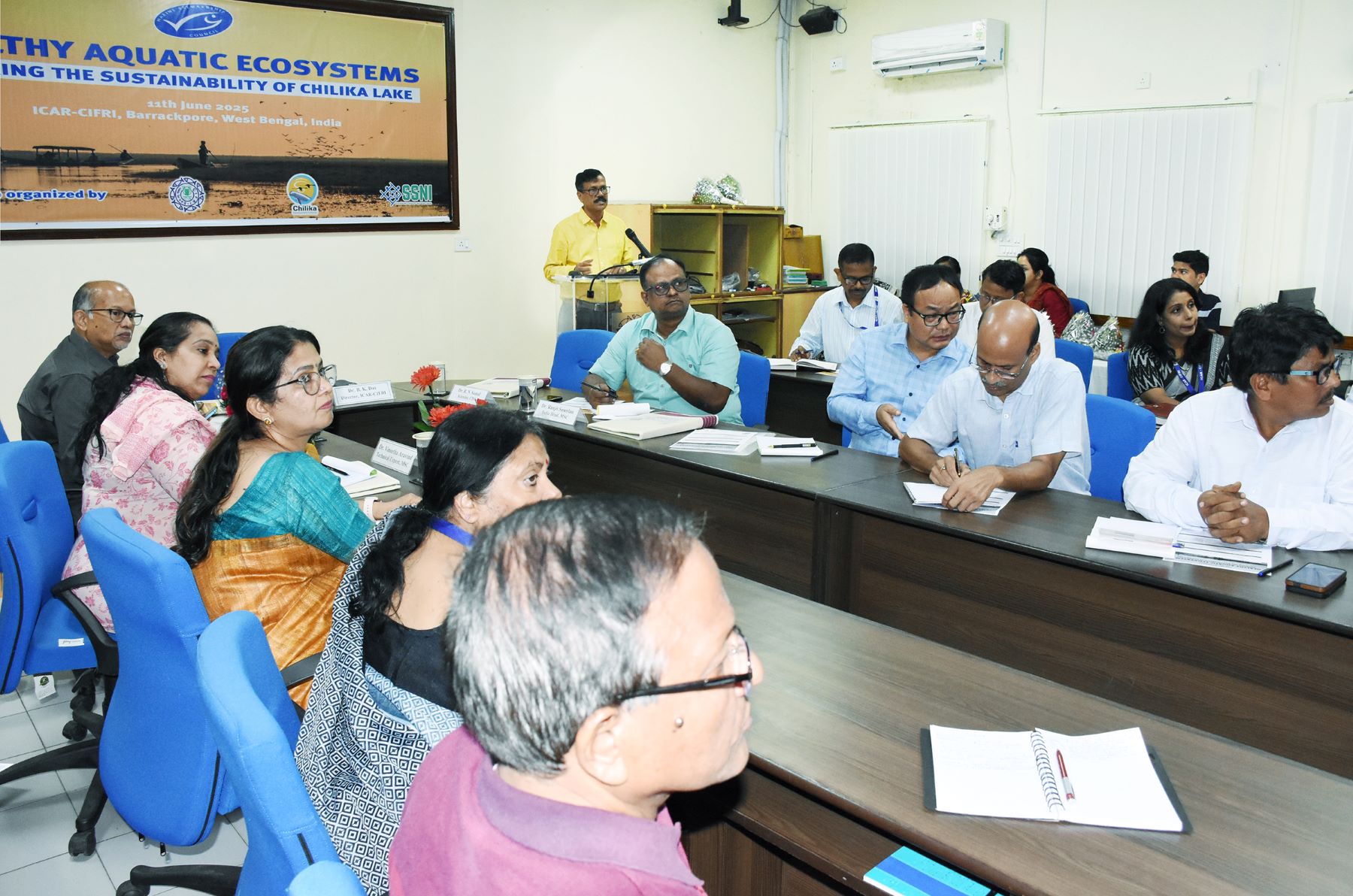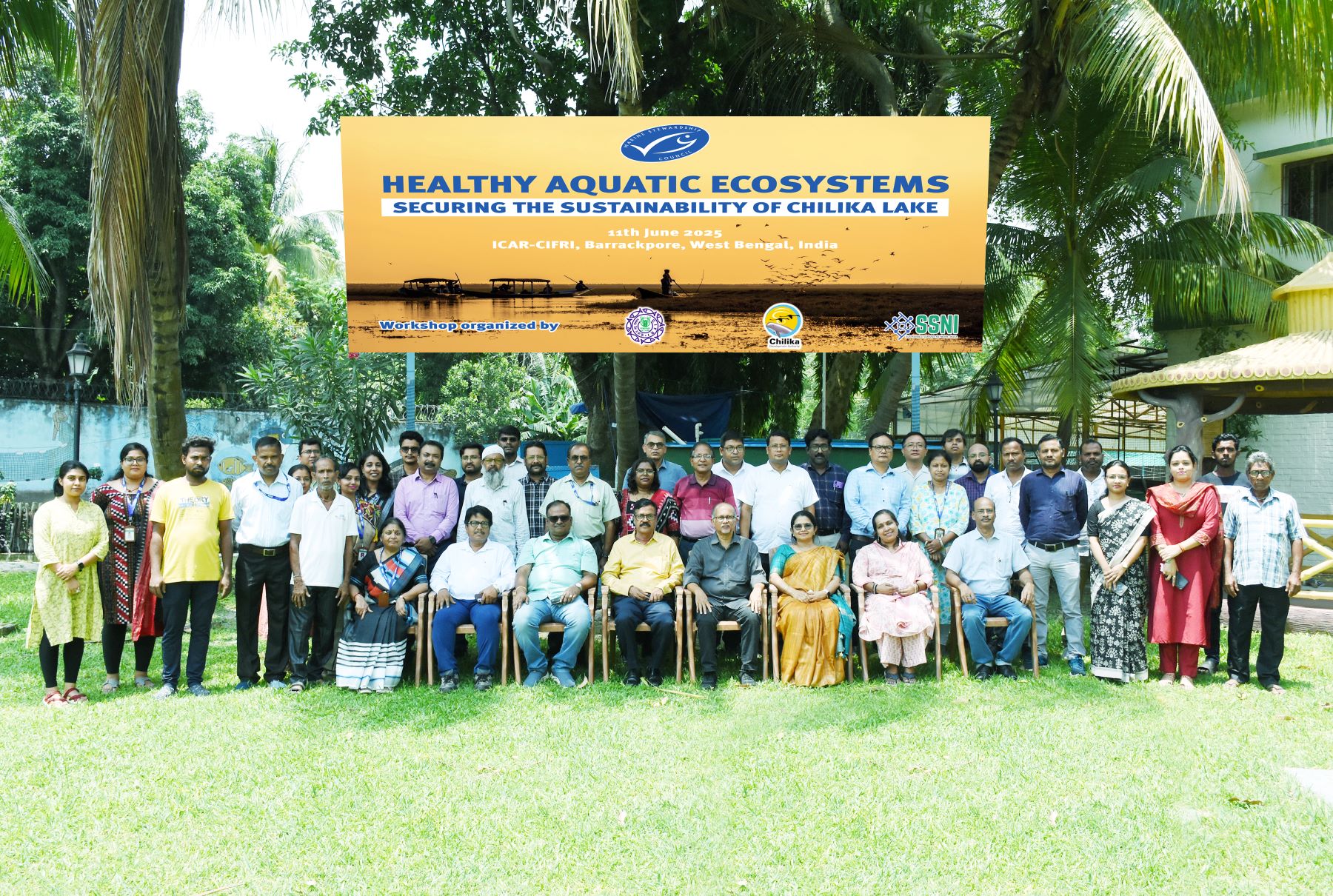Overview
Publications
Recruitment
Intranet
CIFRI Corners'
Diverse stakeholders join hand for India’s first inland fishery to be earmarked for sustainability certification programme
In a pioneering effort, fishery scientists, policy makers, industry stakeholders and community leaders have joined together for earning global sustainability recognition for Chilika Lake. A joint initiative by diverse stakeholders was launched to enter into global sustainability certification process for the Lake’s mud crab fishery, a vital economic and ecologically important resource in the North East region.
India’s first inland fishery to be earmarked for MSC certification
The move is aimed at achieving globally recognised sustainability certification of the Marine Stewardship Council (MSC) and thereby elevating the market value of this fishery in exports, while protecting stocks, the wider ecosystem and local livelihoods depending on the resource. The Chilika mud crab is India’s first inland fishery to be earmarked for the MSC’s sustainability programme. The MSC is an international fisheries sustainability and ecolabelling program that recognises and rewards sustainable fishing practices. The certification process for a dozen of marine fish species from the country is in the final stage.


Dr. Basanta Kumar Das, Director of CIFRI said: " Sustainable fisheries management is crucial for preserving the ecological balance of Chilika lake and ensuring the livelihoods of communities depending on it. Through collaborative effort and scientific innovation, we aim to advance responsible practices that protect aquatic biodiversity while promoting economic resilience by the certification of fisheries. This workshop serves as a stepping stone towards a future where conservation and development go hand in hand."


The meeting identified a road map for the certification process and prposed strategies for enhancing community involvement and the implementation of this joint endavour. Fishery scientists suggested developing and deploying effective restoration and mitigation strategies to address environmental challenges. The stakeholders decided to prepare a roadmap for prioritised species from the inland fisheries for the MSC certification.










